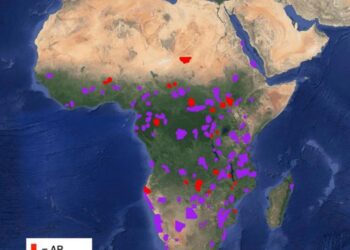Embargoed until 10:00 a.m. Wednesday, 10 April, 2024 Central European Summer Time (GMT +2)
Embargoed until 10:00 a.m. Wednesday, 10 April, 2024 Central European Summer Time (GMT +2)
10 April, 2024, Prague, Czech Republic—The same technology that enables a bullet train to travel at speeds up to 200 mph without touching its rails now keeps a failing heart pumping—and in the near future, it will do so via a wireless power connection. Mandeep R. Mehra, MD, FRCP described the cutting-edge heart pump and other advances in mechanical circulatory support (MCS) today at the Annual Meeting and Scientific Sessions of the International Society for Heart and Lung Transplantation (ISHLT) in Prague.
“It’s been very difficult to realize gains over the last 30 years in the field of mechanical circulatory support,” said Dr. Mehra, executive director of the Center for Advanced Heart Disease at Brigham Health in Boston. “But we’re now at a point where surgically implanted devices have moved from rescuing patients on the brink of death to providing long-term therapy, prolonged survival, and functional capacity.”
MCS devices are temporarily or permanently implanted in patients with advanced heart failure to keep the heart pumping enough blood. Dr. Mehra likened the generational shifts in MCS devices to the evolution of automobile technology.
“I think we’ve come from the Model T Ford to a Mercedes Benz or BMW,” he said. “Now we need to move to the Porsche and Ferrari.”
Early MCS devices mimicked human heart function. Large, bulky, and heavy, they had multiple moving parts that could fail. The next generation of devices, small non-pulsatile continuous-flow pumps, are smaller but come with a risk of bleeding from mucosal sites such as the intestines.
“These devices need a power line that exits through the patient’s abdomen and connects to external batteries,” he said. “So while patients with this pump live longer and have greater functional capacity, they are tethered to a battery.”
The latest development in MCS devices, the magnetically levitated centrifugal-flow pump, prevents clotting and reduces bleeding and other complications inherent in earlier devices. It features a motor and a rotating disk that is completely suspended in a magnetic field, operating under the same ‘maglev’ principle used in high-speed trains. With no mechanical bearings and wider passages for blood flow, the frictionless pump creates an artificial pulse by rapidly changing rotor speed.
Dr. Mehra said patients with left ventricular assisted devices (LVADs) engineered with the technology now live beyond five years, a survival rate which rivals that of many heart transplant patients.
“At this point in time, MCS devices are much more forgiving,” he said. “But we need to move to an era where they become forgettable.”
The cutting-edge maglev heart pump has been implanted in well over 10,000 patients, but Dr. Mehra said that number could increase ten-fold with additional advancements, including further miniaturization and fewer peripheral components.
“In the next five years, new pumps will have a fully internalized power line and be wirelessly powered from outside the body, just like our iPhones,” he said. “We’ll implant these devices, and the patient will be able to forget about them.”
In his presentation, Dr. Mehra also reported on other advances revolutionizing the field, including xenotransplants and bacteriostatic, biocompatible surfaces that minimize infections.
“We have the potential to serve many more heart failure patients, adding years to their lives and, importantly, life to their years,” he said. “The scalable impact is huge, and we’re just scratching the surface now. In the next five to seven years, unnecessary patient deaths will be a thing of the past.”
END
The following relevant financial relationships exist related to this presentation. Dr. Mehra reports consulting fees derived from Abbott (paid to his institution, Trial leadership), Natera (Steering Committee), Paragonix (consulting), Moderna (CEC), NupulseCV (Scientific Board), Fineheart (Scientific Board), Transmedics (Scientific Board), Leviticus (Scientific Board), Cadrenal (Trial Leadership), Second Heart Assist (Trial Leadership). Dr. Mehra will discuss off label use and/or investigational use of the HeartMate 3 LVAD.
About ISHLT
The International Society for Heart and Lung Transplantation (ISHLT) is a not-for-profit, multidisciplinary, professional organization dedicated to improving the care of patients with advanced heart or lung disease through transplantation, mechanical support, and innovative therapies via research, education, and advocacy. ISHLT members focus on transplantation and a range of interventions and therapies related to advanced heart and lung disease.
The ISHLT Annual Meeting and Scientific Sessions will be held 10-13 April at the Prague Congress Centre in Prague, Czech Republic.
Contact:
Jess Burke, CAE
ISHLT Director of Marketing and Communications
+1.312.224.0015
Discover more from Science
Subscribe to get the latest posts sent to your email.



